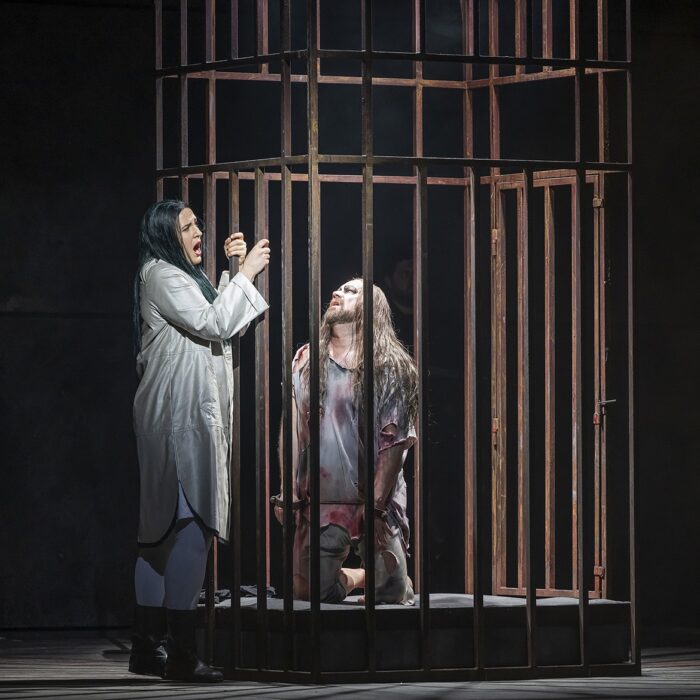
Are Online Concerts the Future of Opera?
By Marian TaylorThe world has been shifting more and more towards digital forms of entertainment due to the global pandemic. This has resulted in countless online-only events, gigs, and concerts that have taken the place of live, in-person events. In the world of live musical performances, this translates to not just new challenges, but also fresh and exciting possibilities as well.
And out of the different genres of live entertainment, nowhere is this more apparent than in opera and other forms of classical music.
Case in point, the country’s three largest opera companies have already shut their doors through the remainder of 2020. Following in the footsteps of the Lyric Opera of Chicago and the Metropolitan Opera, the San Francisco Opera is the most recent victim of the ban on mass gatherings for non-essential purposes.
While SF Opera General Director Matthew Shilvock is of course distraught by this recent development, his statement reveals the direction in which opera is likely to evolve. “As painful as this moment is, we remain a company of extraordinarily creative artists, artisans, and technicians, dedicated to doing everything we can to bring opera to life in other contexts, whether digitally or live in other venues, as government mandates and critical issues of safety allow.”
While most other genres have easily transitioned to radio and digital formats even before the global lockdowns began, it hasn’t been easy for the art of opera to shake off its live roots. Opera and classical music are fundamentally tied to the rituals, perfect acoustics, and live audiences of concert halls. Separated from some or all of these crucial elements, all-digital opera performances tend to be strange versions of what both fans and performers have gotten used to during the last 100 years.
The good news is that this hasn’t stopped classical musicians from exploring this new digital format for what it is: a massive opportunity to reach new audiences.
One notable example is the Berlin State Opera’s performance of Carmen, a four-act opera by the French composer Georges Bizet. The New York Times’ review of the live-streamed performance attests to the flawless performances of mezzo-soprano Anita Rachvelishvili as the titular character, accompanied by the equally pristine tenor of Michael Fabiano – in full costumes and accompanied by an orchestra. Closer to home, the Atlanta Opera’s modern version of Humperdink’s Hansel and Gretel reimagines a classic tale for the pandemic world. In this adaptation of director Brenna Corner, siblings Hansel and Gretel are isolating at home and apart from one another, while the villainous Gingerbread Witch appears as a senior having trouble receiving video calls.
Then there are the live streamed recital and concert events that we have seen from several of the top companies, including the Metropolitan Opera, which recently launched a 12-part performance series this past weekend.
These performances highlight a very important fact about opera’s sudden move to digital: it’s evolving into something new. While the massive changes have elicited both dreadful and strange feelings in career opera and orchestral musicians, it’s also highly apparent that they’re more than capable of doing it all online. From massive and full-blown opera performances to smaller gigs from home, opera seems to know of no other way to move expect forward.
In fact, while both opera houses and recording studios are either closing shop or suspending services indefinitely, The Economist notes how this has been followed by a boom in home studio recording. Indeed, with the amount of home studio and streaming technologies available to musicians today, there’s certainly no shortage of tools for both established and emerging opera singers to get the show on the road, even if they’re not that tech-savvy. Designed for plug-and-play use, the Snowball iCE microphone’s newbie-friendly features allow even the most tech-averse musicians to easily set up online gigs. This type of user-friendly mic allows at-home musicians to capture and record fantastic sound without having to bother with complicated equipment.
Meanwhile, platforms like Zoom and Facebook Live have allowed relatively unknown opera singers to reach out to their local communities and beyond. In short, it’s never been easier to record and stream musical performances from home, and many from the opera community are already taking advantage.
For instance, New York-based performance group thingNY has dreamed up a promising way of performing live online. In their original A Series of Landscapes opera-theater show, seven performers met on Zoom to perform live to an audience over the internet. In this case, apart from the fact that the performance is specially designed for this new format, the use of a digital space also contributed to the dreamlike quality of the original material.
Similarly, Pixel Playhouse offers a more interactive form of live digital theater in “Definitely Not Clue,” the musical murder mystery by Sara Beil. Apart from involving audiences in mystery-solving and plot advancement, Pixel Playhouse combines live and recorded performances in its live acts, underscoring the new ways in which traditional performers can leverage the ongoing digital transformation of opera and theater.
Other creative and independent groups who are tackling the new conditions similarly are Aye Defy, Four Walls Theater, and Cedar Rapids’ Mirrorbox Theatre, all of which have been doing live theatrical readings on Zoom and similar platforms.
While there is no doubt that digital operas can never truly compare to the feeling of either performing or watching live concerts in spaces specially designed for the acoustics of operatic performance, opera’s newfound home in digital space is also ripe with possibility.
Categories
Special Features

